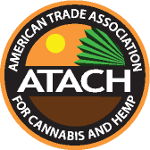South Carolina
- Overview of Cannabis and Hemp Laws
Cannabis:
- Recreational Use: Illegal. South Carolina has not enacted any laws permitting recreational cannabis use.
- Medical Use: Limited to low-THC CBD products under strict conditions for severe medical conditions, such as cancer and epilepsy. The state does not have a comprehensive medical cannabis program (S.C. Code Ann. § 44-53-110 et seq).
Hemp Intoxicants and Synthetic THC: South Carolina prohibits hemp intoxicants, including products containing delta-8 THC and other synthetic cannabinoids.
- Historical Context
- 1930s: Cannabis prohibition begins, aligning with federal policy.
- 2014: Julian’s Law (S.C. Act No. 221) permits limited use of CBD oil for severe epilepsy and specific conditions.
- 2018: Following the federal Farm Bill, South Carolina updates hemp regulations, though without provisions for intoxicants.
- Current: Legislative efforts to expand medical cannabis access have been proposed but have not passed.
- Recreational Cannabis Laws
- Possession Limits: All cannabis possession is illegal, with severe penalties, including possible jail time and fines.
- Cultivation: Home cultivation is prohibited for any purpose.
- Public Use: Public consumption and display of cannabis are illegal, with criminal penalties applied.
- Sale and Retail: Cannabis sales are illegal for both recreational and medical use; there are no licensed dispensaries in the state.
- Medical Cannabis Laws
- Patient Eligibility: Only patients with conditions like severe epilepsy qualify for low-THC CBD oil.
- Product Access: Access to low-THC CBD oil is restricted, and products must adhere to defined THC limits.
- Program Details: South Carolina does not have a comprehensive medical cannabis program. Limited access to low-THC CBD oil is available only for specific conditions.
- Hemp-Derived Intoxicants
- Regulatory Status: South Carolina bans all intoxicating hemp-derived products, including delta-8 THC.
- Testing and Labeling: Not applicable due to prohibition.
- Age and Retail Restrictions: No specific age or retail restrictions exist as intoxicating cannabinoids are banned.
- Criminal Penalties for Cannabis Offenses
- Possession: Possession of any amount for personal use is a misdemeanor, with penalties up to 30 days in jail and a $200 fine for a first offense. Subsequent offenses incur harsher penalties.
- Sale and Distribution: Selling any quantity is a felony, punishable by up to 5 years in prison and a fine up to $5,000. Selling to a minor incurs more severe penalties.
- Trafficking and Cultivation: Possession of large quantities (over 10 pounds) is considered trafficking, with mandatory minimum sentences ranging from 1 to 25 years, depending on the amount, and fines up to $200,000 for large amounts.
- Social Equity Programs
- Eligibility Criteria: South Carolina does not have a social equity program for cannabis or hemp.
- Licensing Benefits: No licensing or financial incentives are provided for social equity applicants.
- Additional Support: No additional support programs exist for communities impacted by previous cannabis prohibition.
- Business Types and Operations
- Licensing Types: No licenses are issued for cannabis-related businesses, as both recreational and medical cannabis are illegal in South Carolina.
- Regulatory Requirements: Since cannabis businesses are prohibited, there are no state operational requirements or regulations in place.
